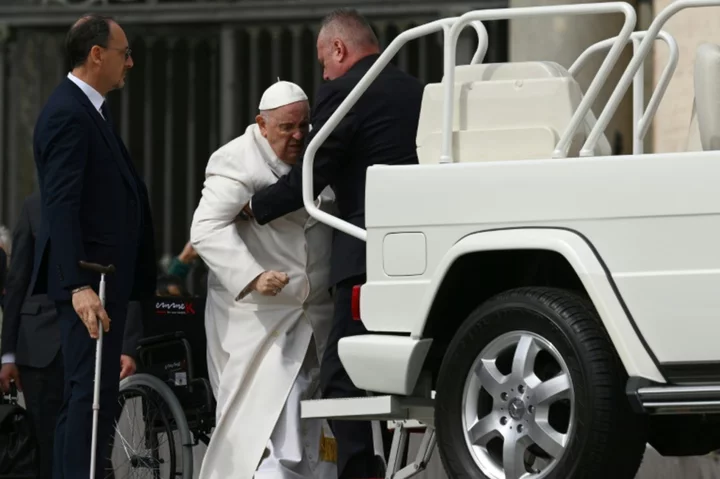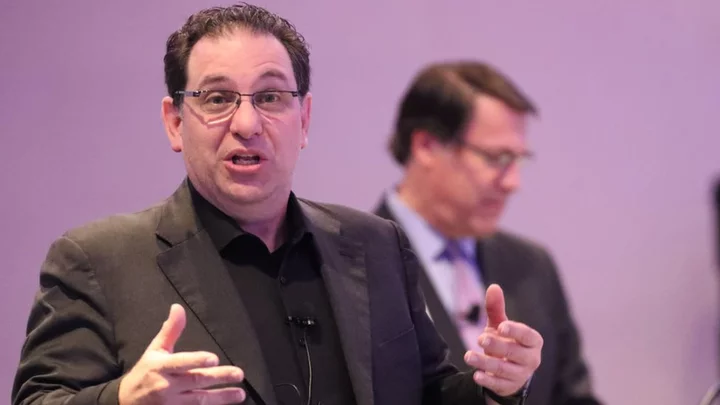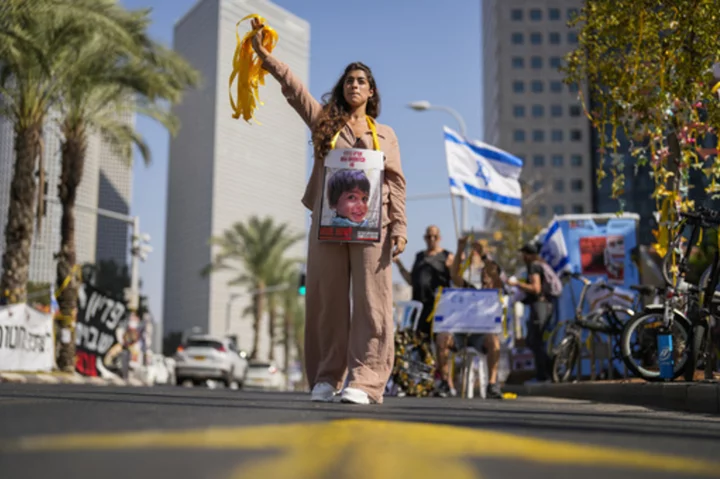Pope Francis, who will undergo surgery for an abdominal hernia, admitted last year he needed to slow down faced with his age -- now 86 -- and increasing health issues.
Here are some of the medical problems the pontiff has had during his life, from an operation in his youth to remove part of a lung, to the knee issues that have forced him to use a wheelchair.
- Lung operation -
When he was 21, the then Jorge Bergoglio almost died after developing pleurisy, an inflammation of the tissues that surround the lung.
According to biographer Austen Ivereigh, surgeons removed three pulmonary cysts and a small part of his upper right lung in an operation followed by a long and painful recovery.
In an interview about his health with Argentinian journalist and doctor, Nelson Castro, he insisted however that he had made "a complete recovery... and never felt any limitation since then".
- Respiratory infection -
The pope was admitted to hospital in April 2023 suffering breathing difficulties. It turned out to be a respiratory infection, which was treated with antibiotics.
- Sciatica and acupuncture -
The pope has complained in the past of a "troublesome guest", sciatica, a chronic nerve condition that causes back, hip and leg pain that has occasionally forced him to cancel official events.
He has a distinctive limp -- he has described it as "walking like a broody chicken" -- but this is caused by a flat foot, Francis told Castro for his book "The Health of Popes".
As archbishop of Buenos Aires, he was treated by a Chinese acupuncturist for his back pain, Ivereigh wrote in The Tablet Catholic weekly in 2021.
Around the end of 1979, early 1980, he also suffered "an almost fatal" infection of the gallbladder and had a "brief" issue with his heart in 2004 after a slight narrowing of an artery, the biographer said.
Problems with a "fatty liver" were overcome through changes to his diet.
- Bach and therapy -
Francis, who was head of the Jesuit order in the 1970s during Argentina's brutal military dictatorship, has also previously sought mental health support.
He spoke with "a great woman psychologist" once a week for six months during the dictatorship, he told Castro, to help him with anxiety.
Nowadays he deals with it by listening to Bach or sipping "mate", a popular Argentinean herbal drink.
The pontiff is reported to go to bed at 9:00 pm and read for an hour before going to sleep for six hours and waking at 4:00 am every day. Lunch is invariably followed by a 45-minute nap.
- Colon operation -
In July 2021, Francis spent 10 days in hospital after undergoing surgery to address symptomatic diverticular stenosis of the colon.
The condition causes potentially painful inflammation of the diverticulum, a pocket that can form on the colon walls and which tend to multiply with age.
Patients with diverticulitis may experience lower abdominal pain, fever or rectal bleeding.
Francis underwent a left hemicolectomy, in which the descending colon -- the part attached to the rectum -- is removed.
He said a year later that he was still feeling the effects of six hours spent under anaesthetic during the operation.
In an interview in January this year, he said the diverticulitis had returned.
He has also visibly put on weight over the past year.
- Honesty -
Francis has repeatedly said he would consider stepping down if his health required it.
His predecessor Benedict XVI shocked the world in 2013 by becoming the first pope since the Middle Ages to resign, citing his declining physical and mental health.
Ivereigh has noted "how freely and transparently Francis discusses his various conditions, physical and psychological".
"How far we are from the Vatican refusing to confirm the Parkinson's everyone could see in the face of John Paul II," he wrote in The Tablet.
In August 2022, the pope named Massimiliano Strappetti, a Vatican nurse, as his personal healthcare assistant.
ide/yad









